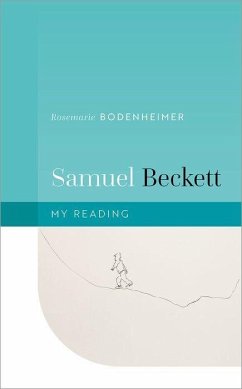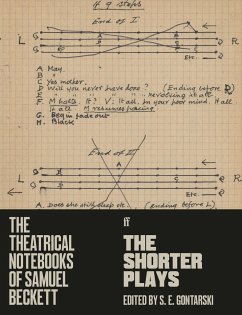
Conversations with Samuel Beckett and Bram Van Velde
Versandkostenfrei!
Versandfertig in 2-4 Wochen
20,99 €
inkl. MwSt.

PAYBACK Punkte
10 °P sammeln!
When Samuel Beckett and the Dutch painter Bram Van Velde met in Paris in the 1930s, both were living in abject poverty, and neither could have anticipated that on the other side of World War II and the brutal occupation of France by the Nazis they would each go on to be luminaries in their respective mediums: Beckett winning the Nobel Prize and becoming a bulwark of contemporary Western literature, and Van Velde holding exhibitions all over the world. Thirty years later, a younger author at the start of his career is introduced into the company of these two great pessimists neither of whom make cooperative interview subjects, and each of whom represents, in his own way, a radical rejection of the common languages of his art.Itself a mixture of idolatry, deft characterization, and critical insight, Conversations with Samuel Beckett and Bram Van Velde is both an entertaining and insightful contribution to our understanding of the lives and thoughts of two masters.
Dieser Artikel kann nur an eine deutsche Lieferadresse ausgeliefert werden.














